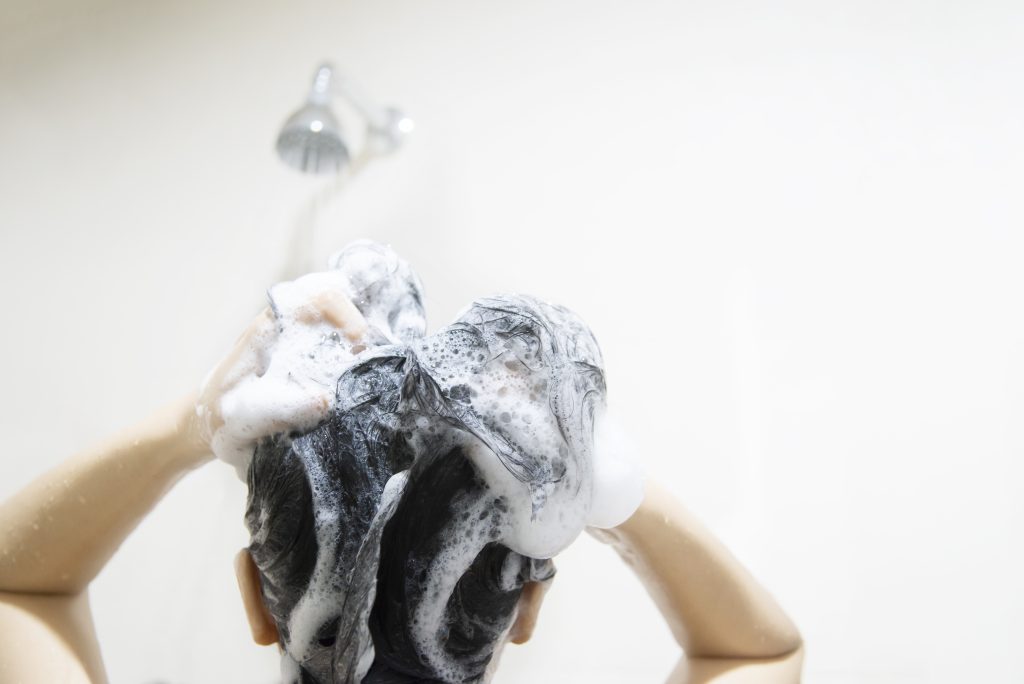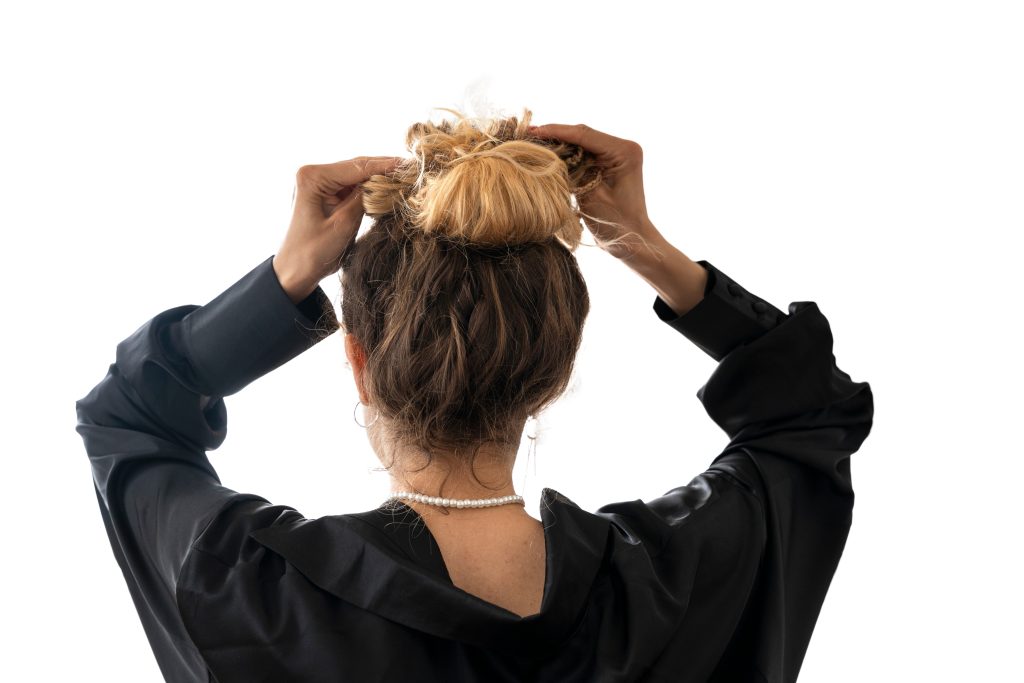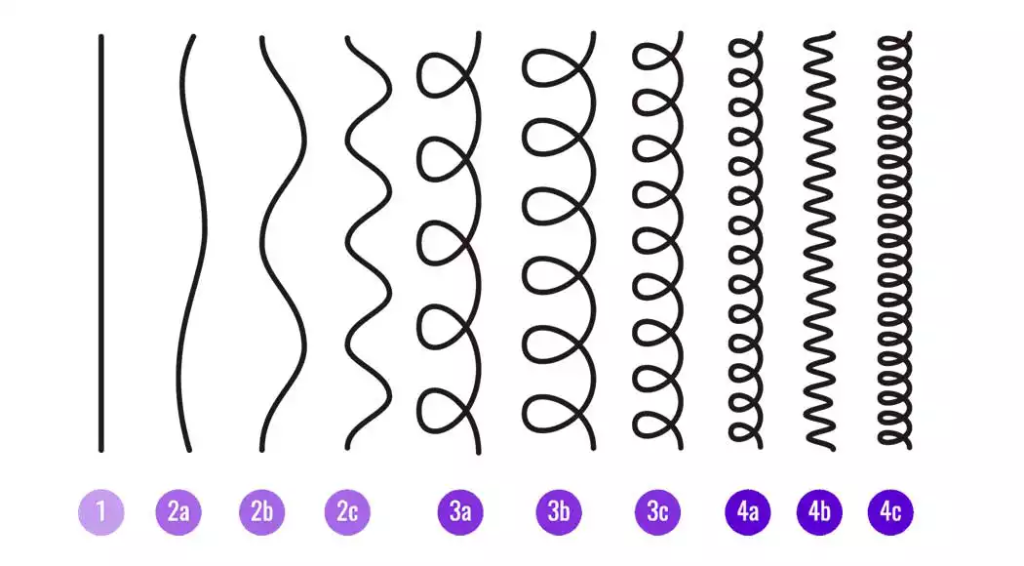If you have wavy hair, you might be wondering whether you should brush it dry or wet.
The answer is not always straightforward, as it depends on your hair type, texture, and personal preferences. However, there are some general guidelines you can follow to keep your waves looking their best.
Firstly, it’s important to understand that wavy hair is more delicate than straight hair, and brushing it too roughly or frequently can lead to breakage, frizz, and loss of definition. Therefore, you should avoid using a regular hairbrush on your waves, especially when they are dry. Instead, opt for a wide-tooth comb or your fingers to detangle your hair gently and avoid disrupting your natural curl pattern.
When it comes to brushing your wavy hair, whether wet or dry, there are pros and cons to both methods. Brushing your hair when it’s wet can be easier and less painful, as it helps to distribute the conditioner and prevent tangles. However, wet hair is also more fragile and prone to damage, so you should be extra gentle and avoid pulling or yanking your hair. On the other hand, brushing your hair when it’s dry can help to add volume, shape, and definition to your waves, but it also requires more care and attention to avoid causing frizz or flyaways.
Types of Wavy Hair
There are three types of wavy hair: 2a, 2b, and 2c. Each type has its own unique characteristics, and understanding your hair type can help you choose the right products and styling techniques.
- 2a: This hair type has loose, subtle waves that are easy to straighten. It tends to be fine and thin and can be prone to oiliness.
- 2b: This hair type has more defined waves that are slightly tighter than 2a. It can be frizzy and tends to be thicker than 2a.
- 2c: This hair type has tighter, more defined waves that can be challenging to manage. It tends to be coarse and frizzy and can benefit from extra moisture.
No matter what type of wavy hair you have, it’s essential to choose products that are designed for your hair type and texture. Look for products that provide moisture and enhance your waves without weighing them down.
In the next section, we’ll explore whether you should brush your wavy hair dry or wet.

Wet Hair Versus Dry Hair
Each brushing method has its pros and cons, so it’s important to understand the differences between the two.
Pros and Cons of Brushing Wet Hair
Brushing wet hair can be beneficial in some ways, but it can also cause damage and frizz. Here are some pros and cons to consider:
Pros of Brushing Wet Hair
- Easier to detangle: Wet hair is more pliable and easier to comb through, which can make detangling easier.
- Can enhance natural waves: Brushing wet hair can help enhance your natural waves and create a more defined curl pattern.
Cons of Brushing Wet Hair
- Can cause breakage: Wet hair is more fragile and can be more prone to breakage, especially if you’re using a brush with bristles that are too harsh.
- Can cause frizz: Brushing wet hair can disrupt the curl pattern and cause frizz, especially if you’re using a brush with bristles that are too close together.
Pros and Cons of Brushing Dry Hair
Brushing dry hair has its own set of pros and cons too. Here are some to consider:
Pros of Brushing Dry Hair
- Can add volume: Brushing dry hair can help add volume and lift to your roots.
- Can create a smoother finish: Brushing dry hair can help smooth out any frizz or flyaways and create a sleeker finish.
Cons of Brushing Dry Hair
- Can cause static: Brushing dry hair can cause static, which can make your hair look frizzy and unruly.
- Can cause damage: Brushing dry hair can cause damage and breakage, especially if you’re using a brush with bristles that are too harsh.
- Losing definition: Brushing dry can cause your waves to lose definition.
Overall, whether you should brush your wavy hair wet or dry depends on your hair type and personal preference. If you choose to brush wet hair, use a wide-tooth comb or a brush with soft bristles to avoid damage. If you choose to brush dry hair, use a brush with natural bristles and avoid brushing too aggressively to prevent breakage. Additionally, air drying your hair before brushing can help reduce the risk of damage and frizz.
Best Brushes for Wavy Hair
When it comes to brushing wavy hair, it’s important to choose the right type of brush to avoid causing damage or frizz. Here are some of the best brushes for wavy hair:
Paddle Brushes
Paddle brushes are great for detangling wavy hair without causing too much tension. They have a wide, flat surface that helps to distribute natural oils throughout the hair, which can help to keep your waves looking healthy and shiny. Look for a paddle brush with soft bristles that won’t tug or pull on your hair.
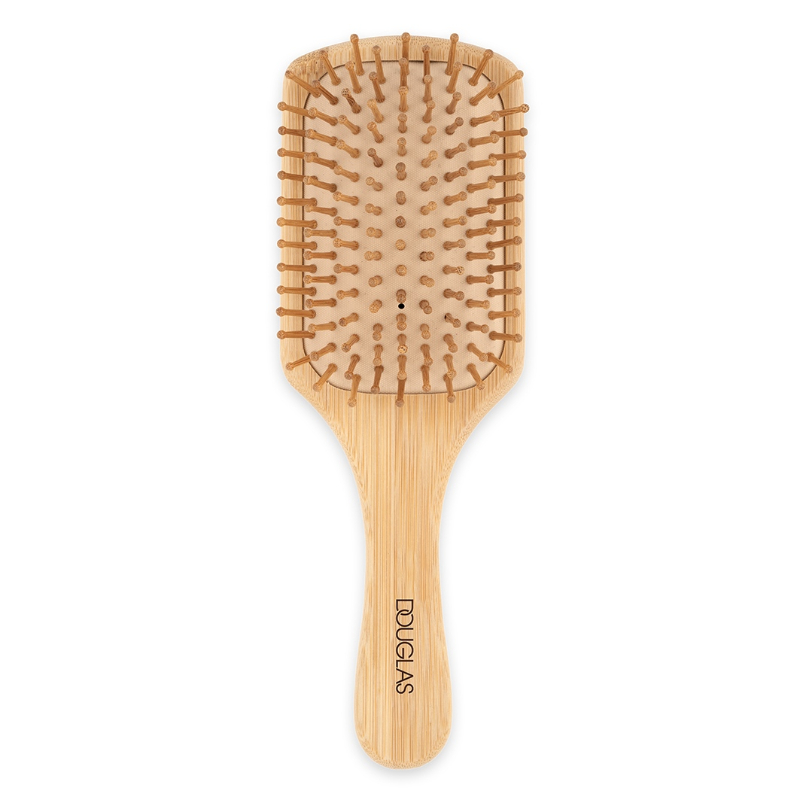
Wide-Toothed Combs
Wide-toothed combs are a gentle alternative to brushes, especially when it comes to detangling wet hair. They have widely spaced teeth that can help to prevent breakage and frizz. If you have thick or curly wavy hair, a wide-toothed comb can be a great option for distributing conditioner or other hair products evenly throughout your hair.
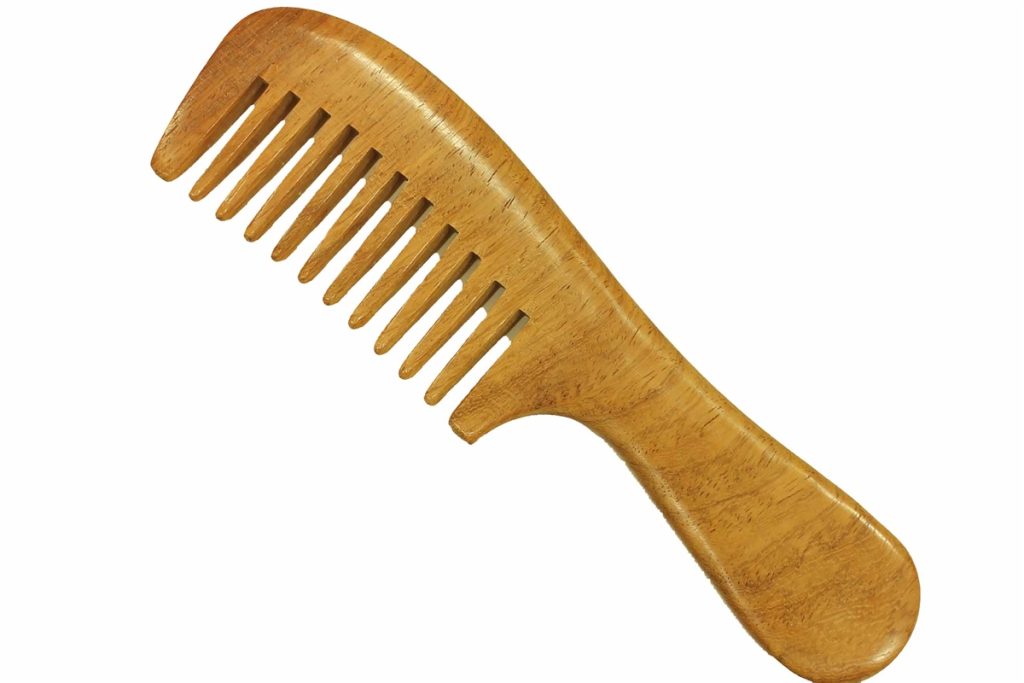
Tangle Teezers
Tangle Teezers are a popular option for wavy hair because they have flexible bristles that can detangle hair without causing damage or frizz. They work especially well on wet hair, and can help to distribute product evenly throughout your hair. Tangle Teezers come in a variety of shapes and sizes, so you can choose one that works best for your hair type and length.
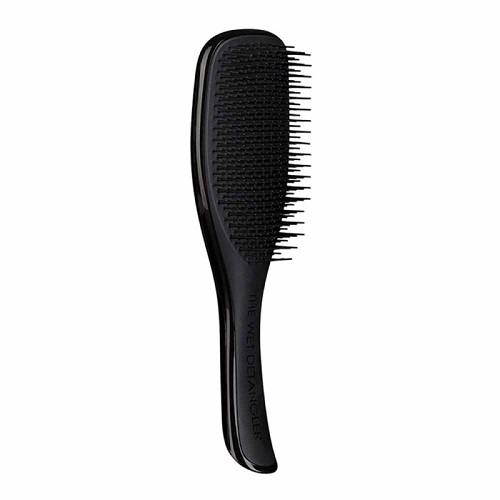
Denman Brushes
Denman brushes are designed specifically for use on wavy and curly hair, and can be a great option for wet brushing and styling. They have soft, flexible bristles that can detangle hair without causing damage or breakage. Denman brushes can also help to distribute product evenly throughout your hair, which can help to enhance your natural waves.
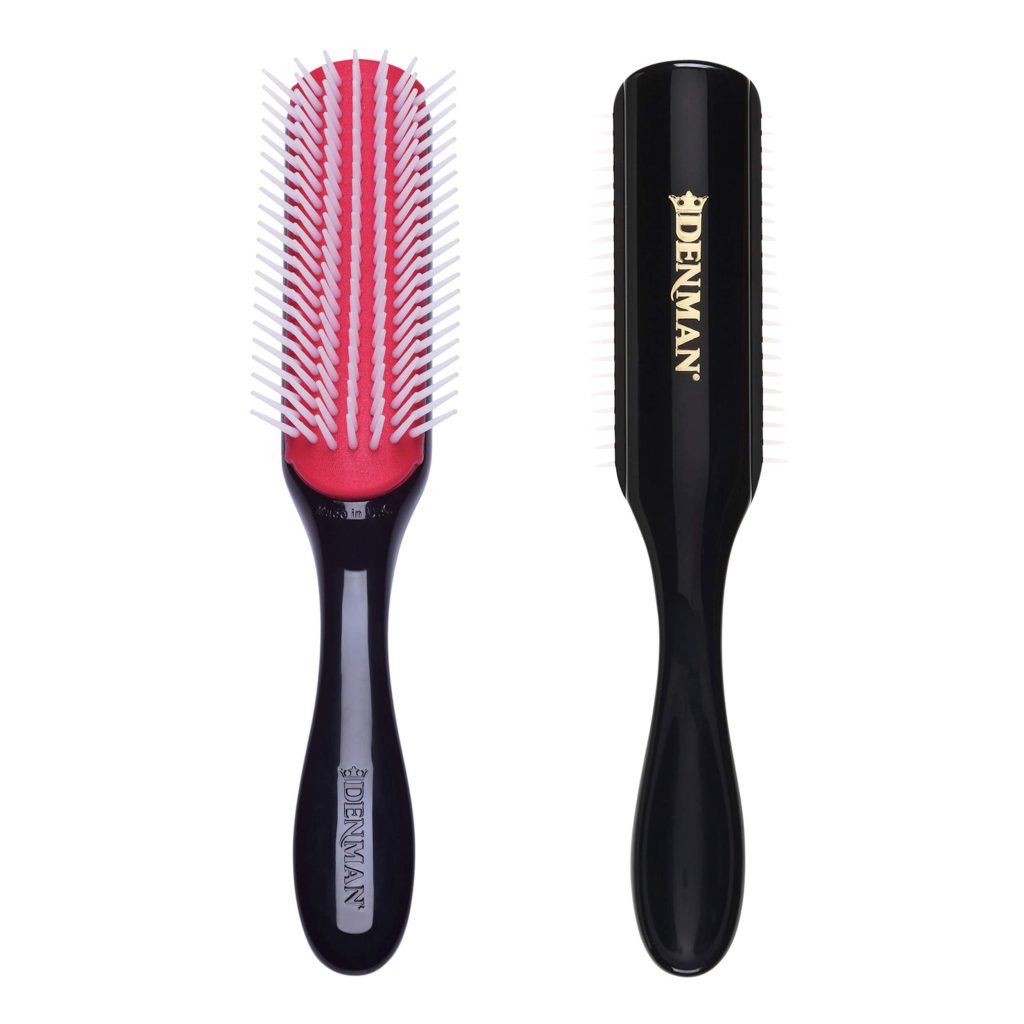
Overall, when choosing a brush for wavy hair, it’s important to look for one that is gentle and won’t cause damage or frizz. Paddle brushes, wide-toothed combs, tangle teezers, and denman brushes are all great options to consider.
Common Mistakes and How to Avoid Them
When it comes to brushing your wavy hair, there are a few common mistakes that can lead to damage, frizz, tangles, knots, and breakage. By avoiding these mistakes and following some simple tips, you can keep your waves looking healthy and beautiful.
Avoiding Hair Damage
One of the biggest mistakes people make when brushing their wavy hair is using the wrong type of brush. If you have coarse or thick hair, a brush with stiff bristles can cause damage and breakage. Instead, opt for a brush with soft bristles or a wide-tooth comb to gently detangle your hair.
Preventing Frizz and Tangles
Frizz and tangles are common problems for wavy hair, but there are ways to prevent them. One mistake to avoid is brushing your hair too vigorously. This can cause tangles and lead to frizz. Instead, use a gentle touch and start at the ends of your hair, working your way up to the roots.
Another tip is to avoid using too much heat on your hair. Blow-drying your hair on high heat can cause damage and lead to frizz. Instead, use a diffuser on low heat to dry your hair, or let it air dry naturally.
FAQ
What is the best brush for wavy hair?
When it comes to wavy hair, it’s important to choose a brush that won’t cause frizz or damage your hair. A wide-tooth comb or a denman brush are great options for wavy hair.
How often should I brush my wavy hair?
I personally only brush my hair before or after washing it. I avoid brushing it any other day to prevent frizz and to keep my waves intact.
Is it better to brush wavy hair when wet or dry?
It’s generally best to brush your wavy hair when it’s wet and has conditioner in it. This will help prevent breakage and make it easier to detangle. If you need to brush your hair when it’s dry, use a wide-tooth comb or a boar bristle brush to prevent frizz and damage.
How do I brush my wavy hair without it getting frizzy?
To prevent frizz when brushing your wavy hair, start by using a wide-tooth comb or your fingers to detangle it. Avoid using a regular brush or brushing your hair too vigorously, as that can cause frizz and damage.
Can brushing wavy hair everyday damage it?
Brushing your wavy hair everyday can cause damage if you’re not using the right tools and techniques. I don’t recommend brushing every day as it can loosen the hairs definition and cause frizz.
Conclusion
In conclusion, whether you should brush your wavy hair dry or wet ultimately depends on your hair type and personal preference.
If you have straight, fine, or coarse hair, it’s best to avoid brushing your hair while wet, as it can cause breakage and damage to your strands. However, if you have wavy or curly hair, brushing your hair while wet can help define your curls and reduce frizz.
If you do choose to brush your hair while wet, be sure to use a wide-tooth comb or a brush specifically designed for wet hair to minimize damage. Also make sure it has a hair mask or conditioner in it, to protect it while brushing.
Ultimately, the key to caring for wavy hair is to experiment with different techniques and find what works best for you. Whether you choose to brush your hair dry or wet, be sure to listen to your hair and adjust your routine as needed. With a little patience and experimentation, you can achieve healthy, beautiful waves that you can be proud of.
If you liked this post, don’t forget to share your thoughts in the comment section down below!


